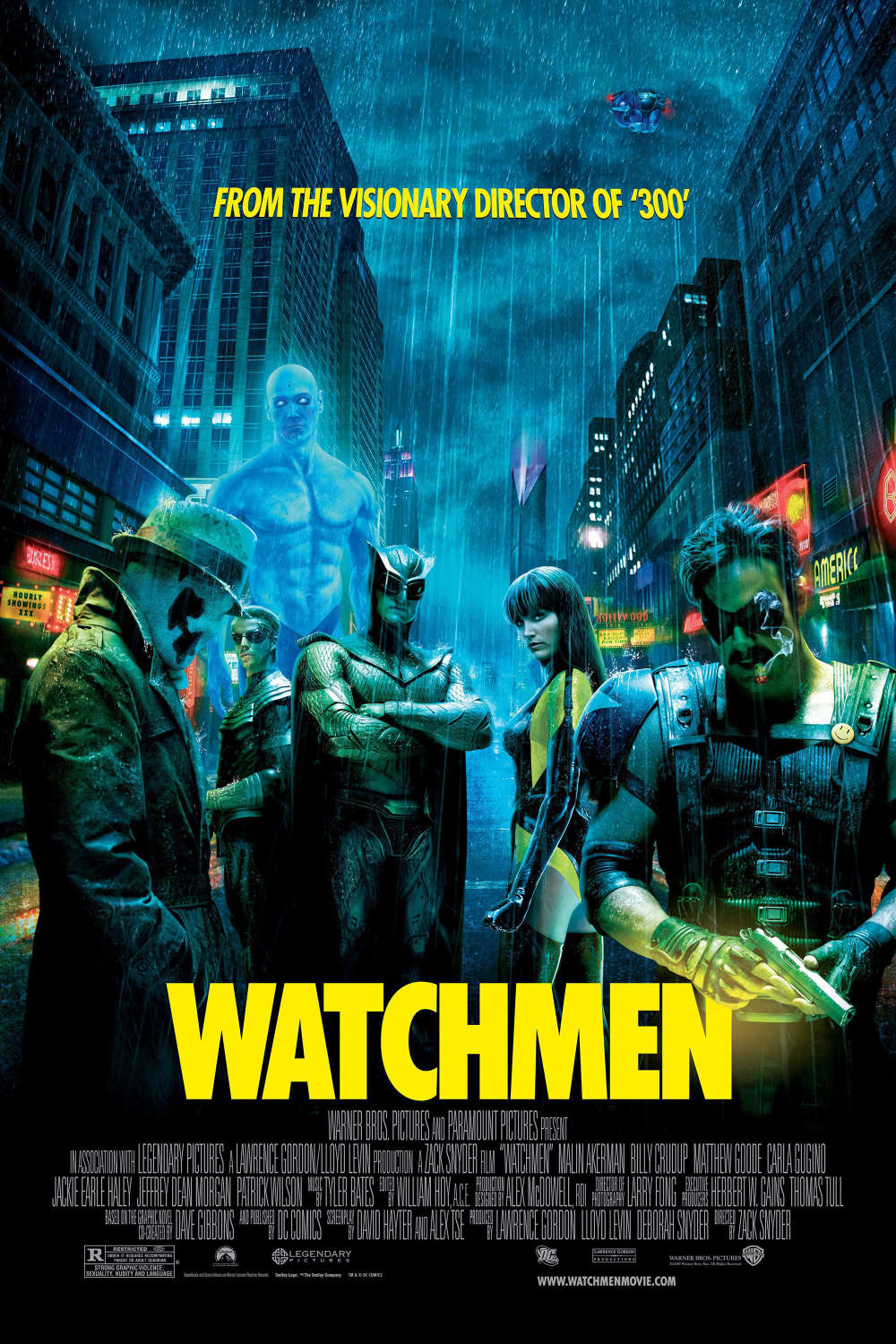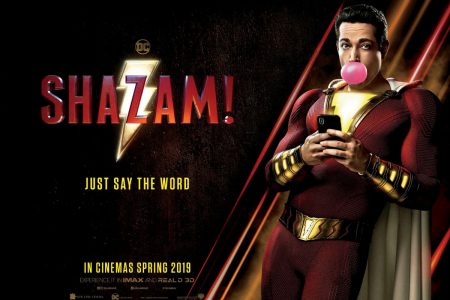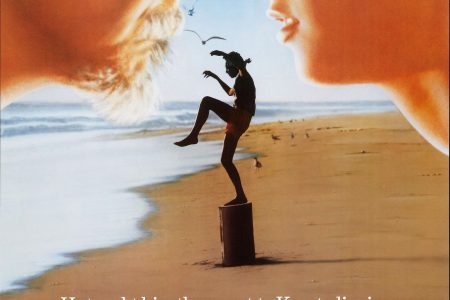This won’t be a review free from bias: I first bought Watchmen in trade paperback form 20 years ago and have read it on average once a year since then. It was the story that made me realise the power of comic books, made me become a fan of Alan Moore for life, and would probably be the answer to the question ‘What is your favourite book?’ if I was ever famous enough for anybody to care about the answer. I thought I needed a disclaimer before talking about the film.
I’m happy that film exists (I sometimes can’t believe that it exists, is the most hyped film of the year, and has been adapted so faithfully), despite the negative feeling rightly felt by its creator: it is a shame that relations turned sour and Moore feels such enmity (the trade was published at a time when they didn’t sell, and everybody expected the rights to revert back to Moore and Dave Gibbons soon after it went out of print – it was the unforeseen success of the book, due to the quality, which is partially responsible for the troubles). But, here’s the thing: beloved words-only books have been adapted by films for the history of Hollywood, even if they are not cinematic, and it’s not going to stop any time soon. Watchmen is very much a comic book, using comic book-specific techniques to tell a comic book story (with a comic book ending), but that’s not going to stop it ending up on the silver screen. I don’t think that a mini-series on television could do the book justice, but that’s not something we have to worry about for the now because this film adaptation is something to be proud of and enjoy.
Zack Snyder has made an extremely faithful adaptation – the clout he earned with 300 allowed him to stay true to the book. The film starts with setting the scene of the story – an alternate history of the US in 1985; the credits sequence is a nice montage of the Minutemen to prepare the groundwork for the main story, which is the book on film, albeit with minor tweaks here and there to streamline it, and with an ending with no squid but in an equally plausible version to achieve the same ends. There are shots in the film that are just panels from the book and they are beautiful. As with 300, Snyder has not strayed unduly from the visual telling from the book, just transferred it to moving images; this can be seen immediately with the murder of the Comedian – it is a fast, brutal, professional fight scene (although Snyder does employ too much sound for the contacts, as if from a bad 1970s kung fu film) that shows that the Comedian doesn’t go down without a fight (even if he does it in a silly dressing gown). From there, we have the familiar voiceover of Rorshach’s journal and the panning out from the blood-splattered badge to the penthouse, the first page of the book. And so it continues …
For the most part, the actors are perfect for their roles (and it was a good idea to have lesser known character actors to keep the focus on the story): Patrick Wilson is great as Dan Drieberg, a man past his prime but with something still there; Jackie Earle Haley is perfect as Rorshach, getting the voice right; Billy Crudup is good as Jon Osterman, underneath the CGI of a hyper-muscled naked man (respect is due for keeping the nudity) and the effect works well, as he looks otherworldly; Jeffrey Dean Morgan is perfect as the Comedian, charming while being a terrible human being; Carla Cugino makes a good Sally Jupiter, in both young and old forms; Matthew Goode plays Adrian Veidt well, although I thought he played it too dark throughout (my girlfriend, who hasn’t read the book, didn’t see it so perhaps it was well judged). The only weak link is Malin Akerman as Laurie Jupiter – the character is a strong one but you never feel that when she is on screen, which is a shame among the others.
Is it perfect? Well, no but that’s probably my proximity to the source material. The ‘Doomsday Clock’ idea is silly, and there was no need to call the team ‘Watchmen’. There is new dialogue to branch the streamlining of the script that is sometimes at odds with the rest that sometimes seems wrong (this is perhaps because the dialogue in the book is for a book, whereas the film necessitates a different approach, such as the line about ‘a pity fuck’), although the lines that remain work well, as does Rorshach’s journal. I thought the music choices were a little on the nose, and the use of Hallelujah for the sex scene was just wrong. The presence of Richard Nixon as a character doesn’t quite work, and the emphasis on the nuclear war/fossil fuels shows the time in which the film was made. However, in all this, the touches that demonstrate the love for the book shine through: Gunga Diner, the electrical car at the end, Bubastis (after all, there is no real need for her), Outer Limits on the television at the end, the inclusion of all things in the book (even the sex scene between Dan and Laurie) – these details mean something and I’m glad they put them in there.
The film is not the book, and never could be. Zack Snyder is not a ‘visionary’ director but he has brought the book to life and used his power for good by getting it to the screen so faithfully. Reading reviews by respected comic book bloggers, it seems that they mostly didn’t enjoy it for whatever was left out of the book (and you could play that game for ever) – it almost made me feel guilty for enjoying the film as much as I did. However, I was entertained and dazzled by the spectacle of a long film that doesn’t feel like two hours and forty minutes. For the first time in memory, I want to see the film again (and in IMAX) soon after watching it for the first time, and I look forward to watching it on DVD. Sorry, proper comic book fans (for apparently I am not based on this) – I really enjoyed Watchmen the film.
Rating: DAVE




